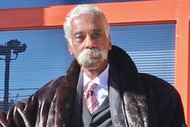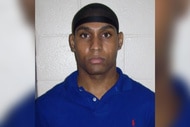Create a free profile to get unlimited access to exclusive videos, breaking news, sweepstakes, and more!
'A Crime On The Bayou' Looks At Ripple Effects Of 1966 Arrest Of A Black Man For Touching A White Boy's Arm
Gary Duncan’s case was dragged all the way to the Supreme Court, which made a landmark decision on the right to jury trials at the state level.

A new documentary released this weekend to coincide with this year’s Juneteenth celebrations looks at the ripple effects of an incident in post-Jim Crow-era Louisiana, in which a Black teenager was arrested, charged, and handed a two-month sentence without a jury trial for the crime of touching the arm of a white child.
“A Crime on the Bayou” looks at an incident in October 1966, when 19-year-old Gary Duncan was driving through Plaquemines Parish and noticed his nephew and cousin surrounded by a group of white children. One boy claimed that the group was merely asking the two their names at the time. Duncan approached, said “my name is Gary,” to one child, Herman “Bud” Landry. As Duncan maintains to this day, he merely “touched him on his arm.”
Swiftly, Duncan was facing a charge of cruelty to a juvenile in the newly integrated parish — which was under the totalitarian purview of Leander Perez, a staunch segregationist. Though Duncan turned himself in and the charges were dropped, the law then came after him with an assault and battery charge. He was denied a jury trial, sentenced to 60 days in prison, and fined $150.
“They wanted to use me as an example for the rest of the Blacks,” Duncan, now 72, says in the film’s trailer.
Duncan’s case was taken on by Richard Sobol, a white attorney from the North, who dragged the case all the way to the Supreme Court. The justices were then forced to ask the question: Was Louisiana obligated to provide a trial by jury in these types of criminal cases?
In its 1968 7-2 decision on Duncan v. Louisiana, the Supreme Court decided in the landmark case that the Sixth Amendment guarantees trial by jury in criminal cases — and that this is "fundamental to the American scheme of justice." States are also obligated under the Fourteenth Amendment to provide such trials, the high court found.
Nancy Buirski, the film’s director, said that in highlighting the outrageous injustice in Duncan’s story, she wanted to not only discuss the case but also expose the insidious nature of white supremacy — how the legal system was, and is still, used to oppress minority groups in America to the point that it affects most aspects of their daily lives.
“It created a world in which Gary Duncan, and so many others, are afraid to walk down the street,” Buirski told People this week, adding that clear examples of racist and anti-Semitic action seen today indicate the nation is not done reckoning with its past and addressing this issue.
“We've obviously been witness to it — whether it's the attack on the Capitol, or Charlottesville, or an attack on a synagogue," she says. "These are all eruptions of that sentiment.”
“A Crime on the Bayou,” which had its world premiere at DOC NYC on Nov. 11, is released in select theaters Friday.

























